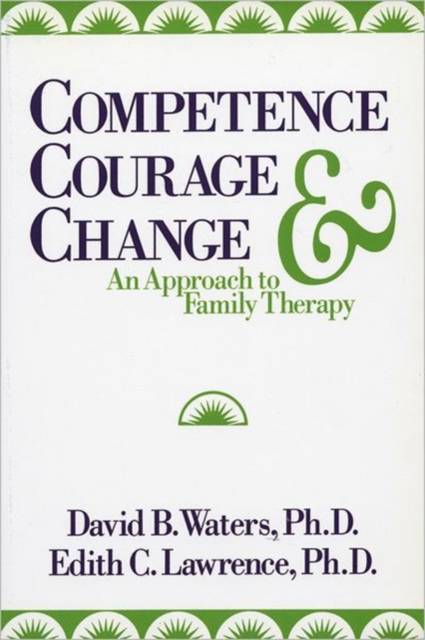
- Retrait gratuit dans votre magasin Club
- 7.000.000 titres dans notre catalogue
- Payer en toute sécurité
- Toujours un magasin près de chez vous
- Retrait gratuit dans votre magasin Club
- 7.000.0000 titres dans notre catalogue
- Payer en toute sécurité
- Toujours un magasin près de chez vous
69,95 €
+ 139 points
Description
This book responds to a long-standing need in the field of psychotherapy created by the gradual demise of the medical model. If we are not to define people by their deficits, how can we organize our understanding of them? The concept of competence provides a conceptual replacement for the medical model. It is based on a systematic search for the strengths and resources that people bring to life but often do not recognize or use fully. Beginning with the idea that most symptoms represent adaptive attempts gone awry, a competence approach develops the healthy urges that reside within symptoms and helps clients organize around those instead of around the problems themselves. Most thinking about proactive, positive approaches to people's problems avoids the problems and symptoms entirely. The competence approach takes the problems and symptoms as very real and uses them as a guide to what the person really wanted to begin with. Instead of eschewing psychopathology, it embraces it and tries to learn from it. The best proactive map for change is based on a new understanding and use of the "pathology." Using numerous case illustrations, this book delineates the why and how of this way of building therapy around hidden strengths, based on a strong partnership with families. Courage, hope, vision, and other concepts not usually treated in psychotherapy are taken seriously and developed as important aspects of treatment. Ultimately, this approach offers people a direct, positive challenge to find and develop the best that is in them.
Spécifications
Parties prenantes
- Auteur(s) :
- Editeur:
Contenu
- Nombre de pages :
- 178
- Langue:
- Anglais
- Collection :
Caractéristiques
- EAN:
- 9780393701395
- Date de parution :
- 01-06-93
- Format:
- Livre broché
- Format numérique:
- Trade paperback (VS)
- Dimensions :
- 156 mm x 234 mm
- Poids :
- 263 g

Les avis
Nous publions uniquement les avis qui respectent les conditions requises. Consultez nos conditions pour les avis.






